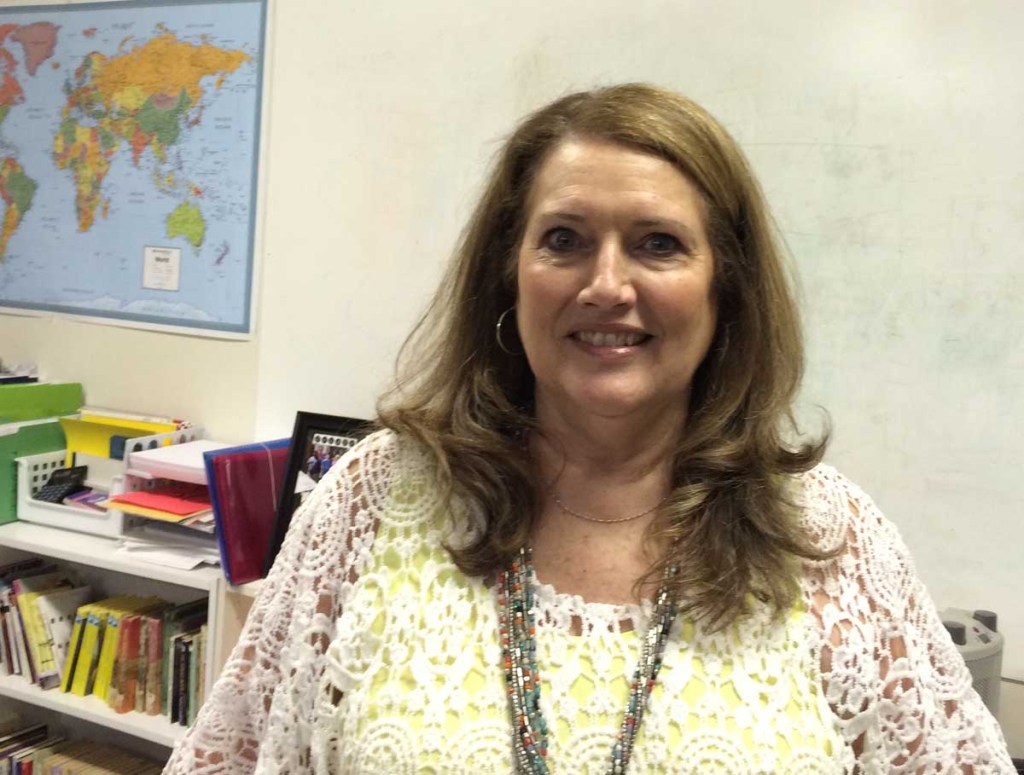Homeschoolers in Georgia get wider access to state scholarships
Published 6:15 am Friday, July 1, 2016

- Ruth Martin poses for a photo in a classroom located in the basement of her home just outside of Atlanta. Martin taught her children at home and now teaches advanced subjects to about 80 homeschool students.
ATLANTA — Alex Spanjer was eligible for the state’s lottery-funded scholarship program when he headed to Dalton State College — but only after he could prove that he was among the state’s brightest students.
As a homeschool student, the Dalton native needed an SAT or ACT score within the 85th percentile to qualify for the HOPE Scholarship four years ago. For students graduating from a traditional high school, a 3.0 grade-point average did the trick.
“I just think it’s not fair to hold homeschool children to one test, and not hold public school children to the same test,” said Spanjer’s mother, Patty.
“It basically goes back to people thinking that you can’t educate somebody at home,” she said.
Homeschool parents and advocates say they understand why a homeschooler’s grade-point average — calculated by a parent — cannot be used to gauge eligibility for the state’s college scholarships.
But with lingering prejudices against homeschooling, they note, these students end up held to a higher standard.
For families depending on a single income, the uneven rules can create financial strain when their children are ready to go off to school.
Homeschool students have been eligible for the state’s Zell Miller Scholarship, which is more lucrative than the HOPE Scholarship, since it was created in 2011. But they could only get the money after proving that they could make the grade during their freshman year in college.
That changed this year in a move hailed as a win for the state’s homeschool community, which last year included some 59,000 students.
Lawmakers agreed to allow some homeschool students to receive aid from the Zell Miller scholarship in the beginning of their college career — but only if a student’s test scores are within the 93rd percentile.
That means a homeschool student must score a 29 of a possible 36 on the ACT, or a 1340 of a possible 1600 on the new SAT.
Students from high school classrooms, who must also meet course requirements that do not apply to homeschool students, can qualify for early funding with 3.7 grade-point average and a score of 26 on the ACT or 1,200 on the SAT.
“People might say, ‘Well, the 93rd percentile doesn’t include a lot of kids,’ and it doesn’t,” said Rep. Joyce Chandler, R-Grayson, who sponsored the bill. “But we’ve opened the door,”
Chandler’s legislation also expanded access to the HOPE Scholarship, by lowering the test-score requirement.
Instead of the 85th percentile bar that Spanjer had to clear, homeschool students can now qualify with scores that rank them among the 75th percentile. That’s the equivalent of a 24 on the ACT or 1160 on the new SAT.
This change will come with additional costs to HOPE, and lawmakers are discussing the program’s long-term sustainability and whether casino gaming should be allowed to help fund it.
Nearly 17,500 students qualified for the Zell Miller Scholarship last year. Almost another 95,000 received HOPE.
While it’s not clear yet how many homeschool students will qualify for HOPE under the new rules, Chandler said she expects the extra cost to be negligible.
She said the program spent about $150,000 more when the Legislature dropped the score requirement to the 80th percentile two years ago, under a measure that she also sponsored. She expects a similar impact this time.
A retired public school educator, Chandler said rules that dictate who gets the scholarship are still “not sufficiently equitable.”
“We’ve worked on making it more equitable, but it is not equal,” she said.
Homeschool advocates would agree. Even so, they see the changes as a sign of a once-wary public becoming more tolerant of homeschooling.
Much of that, advocates say, has to do with results. Homeschool students scored higher than the national average on the 2014 SAT, according to the National Home Education Research Institute.
It also doesn’t hurt to have friends in Atlanta, including some lawmakers who homeschool their own children.
Still, homeschoolers represent a sliver of the 1.8 million school-aged children in Georgia — which is partly why homeschool advocates celebrate even minor victors under the Gold Dome.
Advocates rejoiced, for example, when homeschoolers made an appearance in the final report of the governor’s Education Reform Commission. It recommended that school systems offering Preliminary SAT or Advanced Placement testing extend the opportunity to homeschoolers, private school students and others.
Changes to the state’s scholarship programs were “a miracle,” said Ruth Martin, a board member for the Georgia Home Education Association, a Christian nonprofit and the state’s largest homeschool organization.
A Lawrenceville resident, Martin started teaching her children at home in 1983 — one year before the state passed its homeschool law.
She and others say they were leery at that time of letting their children be seen in public during normal school hours for the attention that it might attract from a suspicious public.
Her own children grown, Martin now uses a portion of her basement to teach advanced subjects, such as world literature, to 80 homeschool students.
Still, she said she is frustrated with the uneven requirements for the state’s merit-based scholarships.
“The kids have worked hard for it, and then you have to fight for it,” Martin said.
Jill Nolin covers the Georgia Statehouse for CNHI’s newspapers and websites. Reach her at jnolin@cnhi.com.


